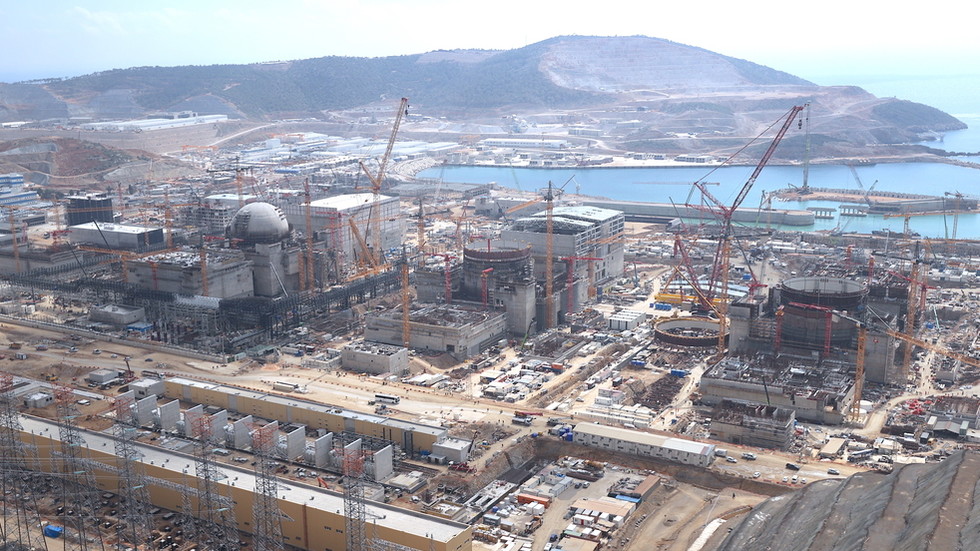Russian Foreign Minister Sergey Lavrov has expressed optimism regarding the potential collaboration between Russia and Türkiye in the nuclear energy sector, particularly concerning the planned Sinop Nuclear Power Plant on Türkiye’s Black Sea coast. In an interview with the Turkish daily Hurriyet, Lavrov stated that should the Russian participation in the project be agreed upon, it would yield mutual benefits for both nations. He highlighted the successful precedent set by the Akkuyu Nuclear Power Plant, which is currently under construction by a subsidiary of the Russian state-owned nuclear corporation, Rosatom. Lavrov emphasized that the decision ultimately rests with Turkish authorities, underscoring the importance of their approval for this partnership to progress.
Lavrov also remarked on the resilience of the Russian economy amid international sanctions, noting a projected growth rate of 3.9% for the year and maintaining a remarkably low unemployment rate of 2.4%. These indicators, he argued, showcase Russia’s ability to adapt and thrive despite external pressures. He suggested that a contractual agreement for the Sinop project could further enhance this narrative of economic stability and growth within the region, fostering greater cooperation in the energy sector between the two countries. By emphasizing the benefits of such collaboration, Lavrov seeks to strengthen bilateral ties and underlines the strategic importance of energy security.
On the geopolitical landscape, Lavrov critiqued the United States for attempting to restrict Türkiye and other nations from engaging in cooperative projects with Russia. He indicated that U.S. sanctions are a significant barrier to joint endeavors, suggesting that the future prospects for practical cooperation rely on finding acceptable solutions between experts from both nations. This context highlights the evolving nature of international relations in the energy sector, where geopolitical considerations often sway the decisions of nation-states as they navigate their economic interests amidst complex global dynamics.
Turning to ongoing projects, the Akkuyu Nuclear Power Plant, expected to launch its first reactor in 2025, represents a significant milestone in Russia-Türkiye relations. Turkish Energy Minister Alparslan Bayraktar has mentioned that construction faced delays, particularly due to difficulties in acquiring equipment from German company Siemens, yet remains a crucial partnership in meeting Türkiye’s energy demands. Once operational, the Akkuyu facility is projected to supply approximately 10% of Türkiye’s energy needs, highlighting the critical role of nuclear energy in the country’s energy strategy.
In terms of the Sinop Nuclear Power Plant, Turkish authorities have already approved the site’s location, with Rosatom reportedly leading the bidding process due to its previous successful ventures in Türkiye. This progress signals a potential new chapter in Russian-Turkish cooperation in nuclear technology and energy production. As the countries work towards finalizing the contractual details, the Sinop project could further solidify this strategic partnership in energy, granting Türkiye an opportunity to enhance its energy independence and contribute to its long-term economic development.
In summary, Lavrov’s comments reflect a broader strategy for enhancing Russian-Turkish cooperation in nuclear energy, showcasing the potential benefits for both nations. As geopolitical tensions continue to influence international relations, the successful execution of existing projects like Akkuyu could pave the way for the Sinop Nuclear Power Plant, reinforcing the importance of collaborative energy strategies facing external pressures. The evolution of this relationship underscores the interplay between economics, energy security, and geopolitical dynamics in the region.

